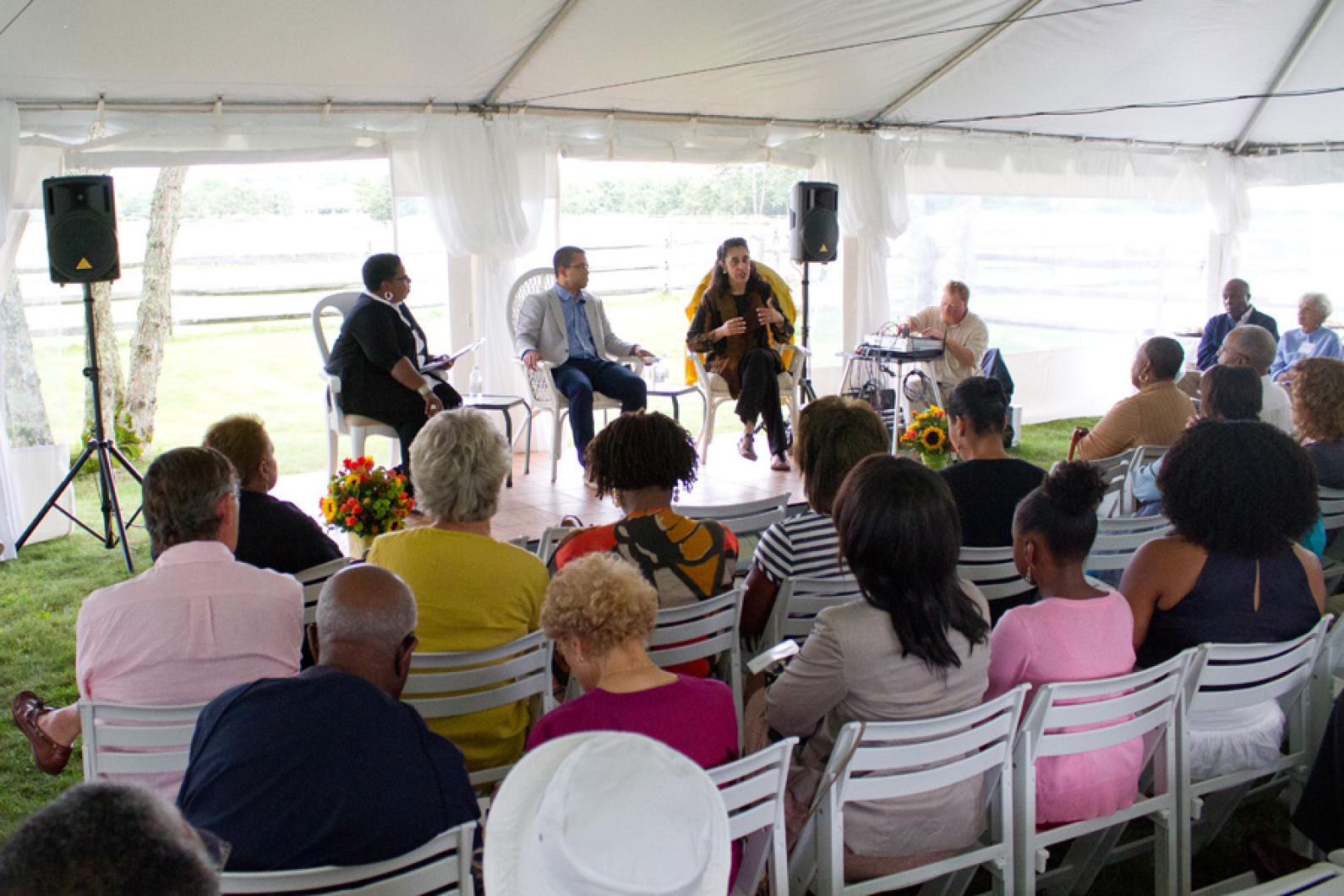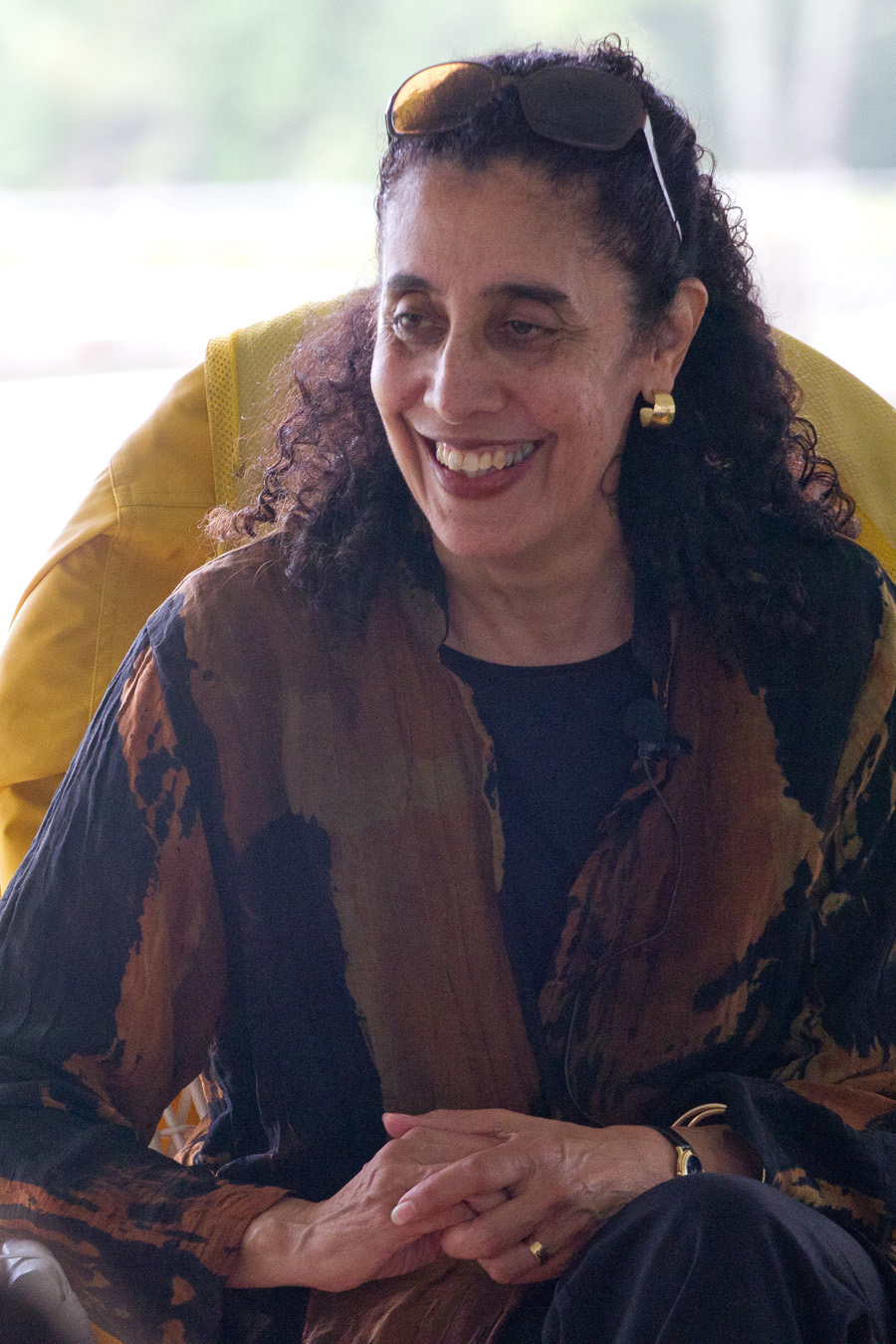The fight for equality is far from over, and the upcoming elections and U.S. Supreme Court term in the fall will be the strongest test of this since the Civil Rights era.
That was the word on Saturday from NAACP Legal Defense fund president and director-counsel Debo Adegbile and Harvard Law School professor Lani Guinier at an NAACP voting rights forum entitled Hijacking Democracy. The legal defense fund has been on the front lines of protecting voter rights, and Ms. Guinier is one of the foremost legal experts on the subject in the country.
Whether through restrictive voter identification laws barring organizations from registering voters, or creating purge lists where states simply take voters off the rolls, Mr. Adegbile said the country is facing the “biggest push in voter suppression since the Jim Crow era”.
Mr. Adegbile characterized many of the voter identification laws being passed as “irrational” and “narrow.” In Texas, for example, a student cannot use a state issued college ID card to vote but “if you have a concealed gun carrying permit... come right in and cast your vote”, he said.
“When you look at the ways the laws are written in this context, they are designed to carve people out,” he said. “There’s also the issue of cost. Some of the underlying documents you have to get... are very expensive.”
The impact of voting issues can be seen as recently as the 2000 presidential election, where somewhere in the order of 500 votes determined George W. Bush’s presidency, Mr. Adegbile said, and “arguably those votes decided the course of history.”
Mr. Adegbile encouraged the audience to learn from that election.
“When you hear young people and others say voting doesn’t matter, the first thing we have to do is educate people that it does matter and encourage them to vote,” he said.
Ms. Guinier echoed his thoughts, adding that “the American Constitution is written in the negative. You cannot be denied the right to vote on the basis of your gender, you cannot be denied the right to vote based on your race. But there is no affirmative statement in our constitution that says our citizens are encouraged to participate in our democracy.”
There are two ways to win an election, Mr. Adegible added, “bring out more of your people or block people from the polls.” Demobilizing voters through impediments like requiring specific voter identification “turns out to be more efficient because you know who’s voting against you, and if you can stop those people from voting, that’s great,” he said.
Ms. Guinier said requiring stringent forms of identification in order to vote can seem “like a booby trap.”
“It has nothing to do with whether this voter is really the person they claim to be,” she said. “The United States seems to believe, at least in many of these states, that they want the fewest number of people to come and vote so they can control that group of people and make sure those people are comprised of their supporters.”
“It’s about marketing and marketing to a particular set of consumers and that’s the way we’re functioning in terms of democracy,” she continued. “We don’t have a functioning democracy in this country, at least not to the extent that other countries [like South Africa and Canada] have managed to exceed the United States in terms of their commitment.”
Ms. Guinier encouraged Americans to challenge the right of each state to determine the requirements of voting in federal elections.
“There should be one set of requirements and it is the responsibility of the federal government . . . this is not a state issue,” she said.
Mr. Adegbile said the conversations about voting rights and equality need to extend far longer than just the months leading up to an election.
“Part of what we need to do is not allow our conversations to be episodic and driven by candidates . . . let’s talk about the kind of country we want to be, so in between elections we’re doing the things necessary to mobilize and enfranchise.”
“When you get in that narrow window before elections, the burden starts to be on the voters, and the advantage goes to goes to those who want to jam up the system,” he continued. “Confusion is an advantage in itself for folks who want to put barriers up. We need the conversation not to be about elections but about the Constitution and democracy.”
In an extended interview with the Gazette, Mr. Adegbile said two U.S. Supreme Court cases to be argued this fall will be critical to the conversation. One challenges the constitutionality of the pre-clearance provision in the 1965 Voting Rights Act, which requires any voting changes in states to have approval from the U.S. Department of Justice. The second involves education, in a case where the University of Texas is defending its inclusion of race as an admissions factor.
The education ruling will be the first affirmative action case since the 2003 University of Michigan decision, which allowed the university’s law school to use affirmative action in its admissions process. In that decision, Justice Sandra Day O’Connor issued an opinion that “nothing less than the future of our nation depends on having these visibly open paths to opportunity,” Mr. Adegbile said. “What we have in both of these cases together is a question of what the pathways to opportunity are going to be in America.”
In order to move forward and be engaged, Mr. Adegbile said people need to educate themselves and “understand what the stories are behind these issues: the historical context, how are they manifesting themselves today, is it a brand new challenge or is it a re-run?”
“There is an opportunity for a new level of engagement in the things that matter to young people,” he continued. “The important thing is for people to engage in the things that they care about and not be overwhelmed by all of the big issues . . . jump in and when you pick something it gives you a base to proceed from when the next challenge comes.”
And he expects many challenges to come for the country, in fact, he welcomes them.
“Part of the American creed is, we can do better than we are today,” said Mr. Adegbile. “It is a false choice to suggest that saying we can do better is a criticism of where we are. You can talk about the reality of where you are, love your country and still want something more for your county . . . we’re trying to build a more perfect union. That contemplates something yet to come.”
“Taking stock of where we are is an important requirement of civil engagement,” he continued. “I like to embrace everything America is. But I also embrace as vigorously, perhaps more vigorously, all that America can be.”







Comments (5)
Comments
Comment policy »